A closer look at consumer behaviour and the future of apples and pears
21st July 2024
As the cost-of-living crisis continues, retailers and top fruit growers heard from experts about the latest consumer behaviour, as well as discussing key issues facing the apple and pear sector, during the recent British Apples and Pears (BAPL) retailer webinar. Deputy editor Sarah Kidby reports.
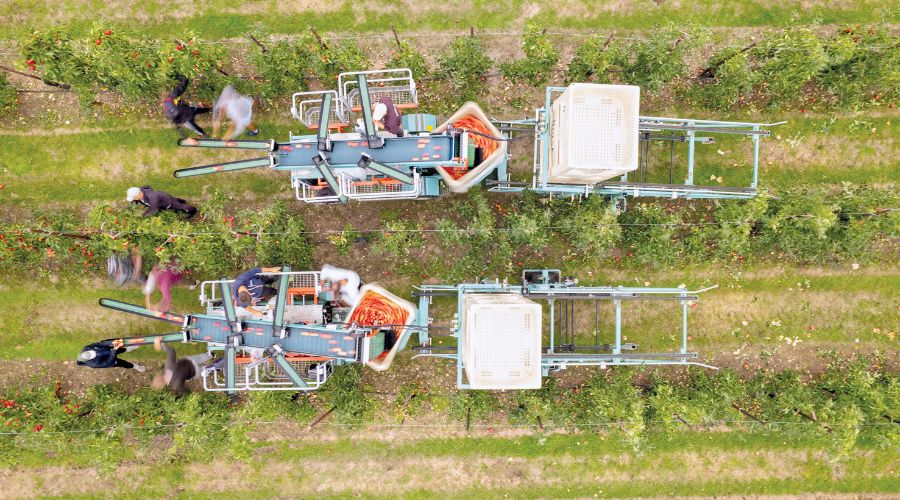
2023 saw one of the smallest apple harvests of the past five years, at 166,000 tonnes compared to 207,000 the year before – and is an example of what happens when the weather doesn’t play ball, BAPL chair Ali Capper said. Gala in particular saw a drop (from 88.3t to 75.6t), as did Braeburn (40.9t to 28t) and there was a slight dip in the all other desserts line (see Table 1). Despite this, the apple and pear sectors are in comparatively good shape when it comes to class one sales – up from 103,800t last year to 107,700t (see Table 2).
Grower returns, on the other hand, are a concern, with a recent analysis by Andersons consulting predicting the cost of production for apples and pears will increase by 5.5% this year. In the past two years, the cost of production has increased by over 30% but BAPL surveys show growers received an average increase of just 8%. Premium packs need a much higher price point to subsidise a greater volume of value pack lines with the price matching mechanisms in supermarkets, Ali added.
Consumer behaviour
Hannah McIlfatrick, commercial director at Worldwide Fruit Ltd, said consumers have been actively looking for ways to mitigate inflation, such as buying less volume, trading down to cheaper products, shopping in cheaper stores, and using promotions to save money. However, consumer confidence is starting to improve, and people are beginning to invest more in product mix. Apples have benefitted from shoppers dropping out of other fruit categories to save money.
Nearly 90% of consumers have bought apples or pears in the last year, according to Kantar figures. The apple market is worth £977 million, with a growth of 6.6%, while pear is worth £240m, with 8.9% growth. Apples saw growth in market penetration, frequency of purchase, volume bought per shop and price/kg.
Gala is the largest apple variety in value, and volume is growing significantly, with market share rising from 25.4% to 27.7%. There is also growth in varieties like Pink Lady and Jazz apples, and William and Rocha in the pear category. Key British varieties like Cox and Bramley remain important, and Conference still dominates the pear sector.
When it comes to shopper mindsets, for apples, there is a movement away from loose and organics, and growth in the flow wrap entry point, but also in the core packs – i.e. the six pack and premium four pack trays. Similarly for pears, there is growth in the polybag entry point and also ripened packs.
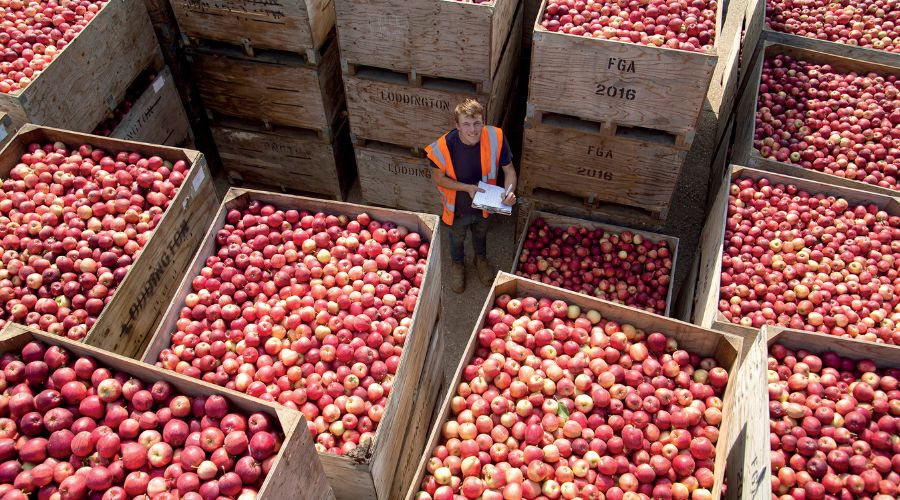
Supermarket performance
The biggest grocery retailer for apples and pears is Tesco, with a 27.3% overall grocery market share, closely followed by Sainsbury’s. Aldi sold nearly 20% of the UK apple and pear crop in 2023, against a grocery market share of 9.8%, while Lidl sold 16% of the crop against a market share of less than 8%.
Waitrose is also selling above its market share and Sainsbury’s has shown real improvement in the last 12 months, selling 18.2% of the British apple and pear crop against a grocery market share of 15.2%.
Whilst it’s disappointing that Tesco’s sales aren’t closer to its grocery market share, the picture is improving year on year – but BAPL would like to see a better performance from ASDA and Morrisons.
There is also frustration about the level of imports that continue into October when British apples are in abundance and wanted by consumers, Ali said. “We really want to see and support those retailers that can start selling in September, and then really, we expect everybody to be hitting maximum volume on British in October. There were some great examples of retailers that achieved that in 2023.”
Ali’s key asks of retailers were: TV advertising, Union Jacks dominating in store, online campaigns covering other varieties, not just Gala, life size posters of UK apple growers, and social media promotion. And most importantly, to increase their grocery market share for British apples.
In 2023, BAPL used product photos to target consumers on social media and tested three messages – ‘new season’, ‘back British farming’ and ‘superfood’ – with superfood coming out on top in terms of engagement.
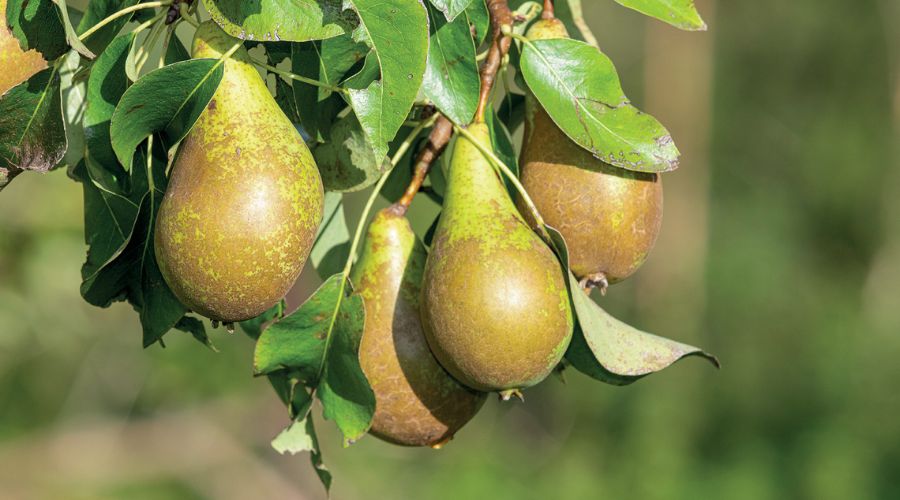
Biggest concerns
One of the biggest concerns discussed was the new ‘employer pays’ principle of the SEDEX/SMETA. “The idea that every employer will have to pay travel and visa costs is quite extraordinary,” Ali commented. “In the midst of a cost-of-living crisis, we believe this is going to add at least £1,200 per worker. […] It means £50–55 million added to the bottom line with no warning.”
Additionally, rule changes introduced on 30th April mean imports are now checked at the border, rather than point of destination. For top fruit growers who import most of their two-year-old trees from Europe, delays at the border could result in un-watered trees deteriorating, and strawberry and tomato plants etc, perishing.
Meanwhile, weather volatility is something that we now need to take much more seriously, Ali noted. The UK is seeing much hotter summers, periods of drought and much lower levels of water. Just 18 months ago, there were reports that Europe could be on the verge of catastrophe as groundwater reserves were drying up. Not to mention, spring 2024 has been one of the wettest on record, meaning many growers have had trees sat in water for weeks, resulting in root death and impacts on nutrient uptake, explained James Simpson, managing director at Adrian Scripps Ltd. Cool, dull conditions also meant that at the time of the webinar in late April, there had been only around two days above 15ºC, when the apple flower is receptive to pollen germination.
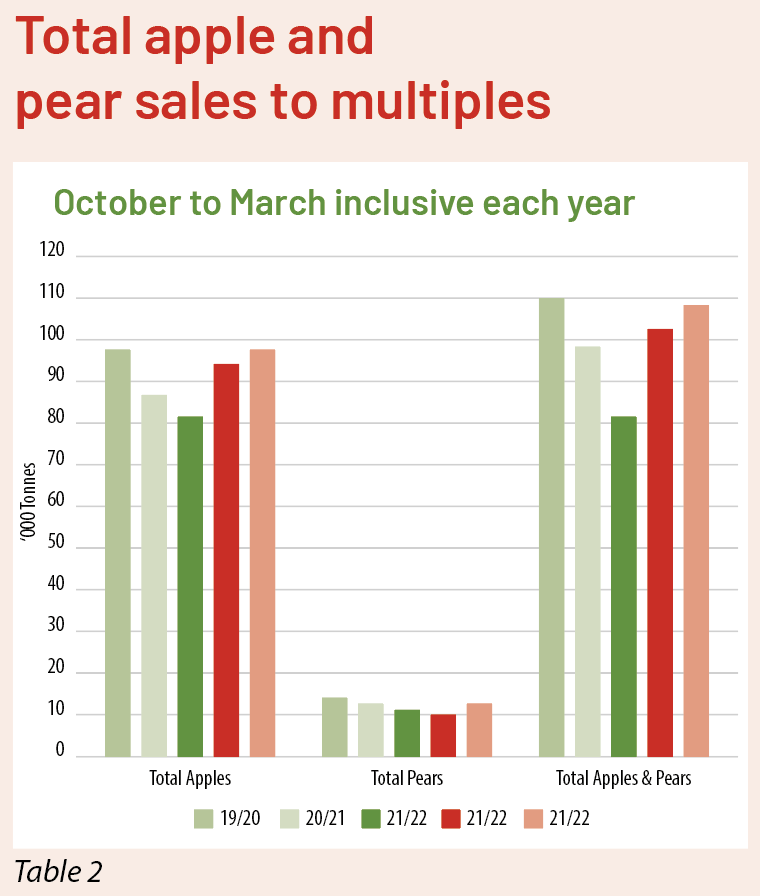
“I think we’ll see some challenges over the next few months with the development of tree death in orchards possibly, or restricted growth and production. And then of course, the wet weather predisposes us to pest and disease so we’re fighting on all fronts. This is one of the most challenging springs we’ve had for many years,” he said.
Whilst climate change presents challenges, the UK is still a very good growing region for top fruit, but infrastructure and investment from government will be needed, including adjustment to planning approvals for water management on the ground and reservoirs.
Temperature change in itself “may not be a big issue for UK horticulture, however – even if we have a 1.5–2ºC rise in average temperatures, James added. “But will some of the more traditional varieties that we grow be suitable for that climate? Some will work very well, but others won’t. So we’ll need varietal development to take us forward. And that’s a really exciting area. At the moment, we are seeing warm apple breeding programmes.”
Additionally, there is work being done to develop sweeter apples to meet a potential shift in the palate of the consumer.
Another area for future development is robotics and Tom Hulme, director at A C Hulme & Sons, acknowledged that it’s a “pipedream at the moment, and certainly not an affordable one”. Whilst an exciting development, it needs to be scalable and affordable. Speakers also called for more opportunities for fruit growers in the Sustainable Farming Incentive and PO scheme.
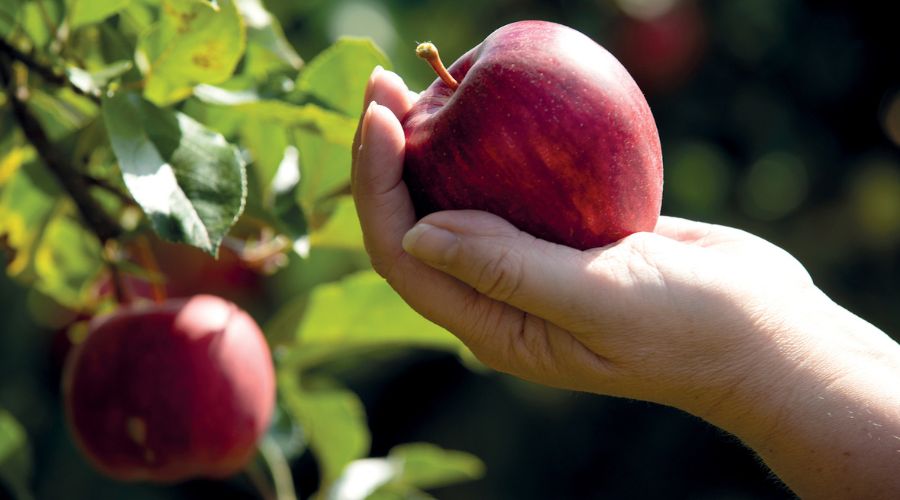
Long-term relationships
Speakers emphasised the importance of longer-term partnerships between growers and retailers. Mark Gaskain, director at Gaskains Ltd and Prime Produce Ltd, acknowledged that the war in Ukraine, increasing uncertainty and climate change, as well as a 28% increase in the national minimum wage in just over two years, has made the cost of production skyrocket – “and it’s putting UK food production at risk”. Grubbing up of orchards has attracted media attention and James Simpson said BAPL data suggests a significant reduction in orchard replanting.
Whilst cheaper fruit is available in Poland or Serbia, Mark warned: “With food supply, cheap labour rates are only ever temporary, and they nearly always come with additional costs and risks.” Recent months have seen significant frosts in Europe, and at the other end of the spectrum, Mediterranean countries have suffered crop losses due to extreme heat.
The key is a sustainable food supply, and the UK needs to de-risk the situation. With orchards being a 20-year programme, longer term approaches are needed. Achieving this is all about partnerships – and a competitive relationship based on price isn’t the answer, he concluded.
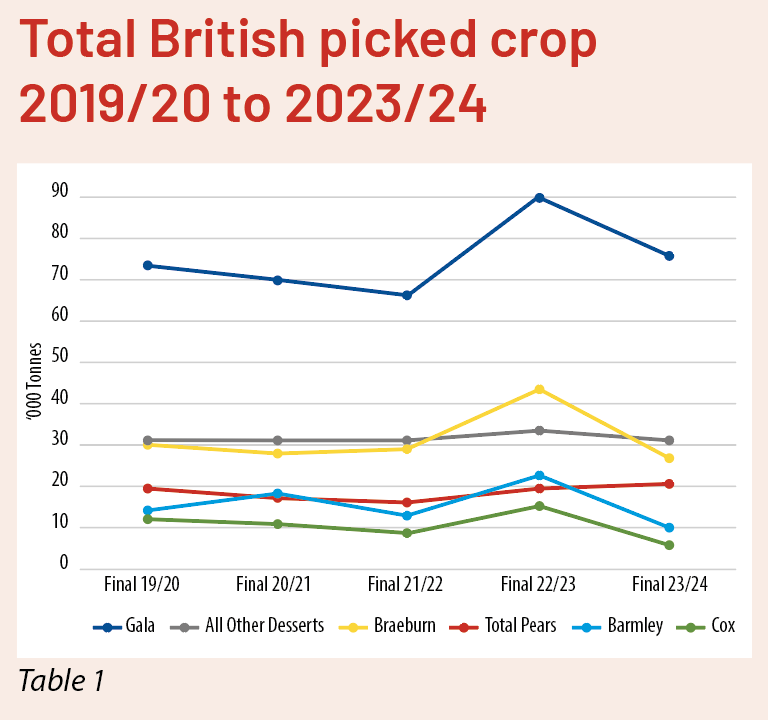
Ross Goatham, managing director at A C Goatham & Son, agreed. “As an industry, we’ve had far too many years now of the transactional nature with our customers and tenders. That doesn’t bring reinvestment. It doesn’t bring sustainability into the industry.”
Deals lasting 3–5 years “don’t scratch the surface in our industry” and “we need to be looking at a 15–20-year contract that will bring investments and might just help offset the labour cost as well,” he added.
